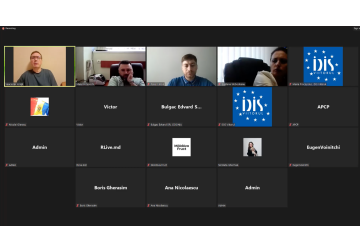
The national business agenda proposes to maintain the excise tax on luxury cars, as well as provide a balanced approach to increasing excise taxes on tobacco products.
Veaceslav Ionita, IDIS Viitorul economic policy expert, stated this at a meeting organized by the institute on the platform of the National Business Agenda to discuss the draft fiscal policy for 2024. The expert stressed that for the first time in many years, the draft document was developed on time, and he contains tax incentives long awaited by society. “We are talking about a “social package” (within 15% of the wage fund), through which the employer will be able to make various incentive payments - social, for medical insurance, employee training, organization of team building, etc. This also applies to tax deductions, which will increase the access of individual employees to optional social and medical insurance contributions, which will stimulate the development of facultative health insurance, which is underdeveloped in our country,” said Veaceslav Ionita. He positively assessed the proposal to make deductible the costs of the mortgage of individuals for the purchase of the first house: this will facilitate the access of the population to the purchase of housing. Veaceslav Ioniță supported the idea of introducing VAT on cars and abolishing excise taxes on them, but recommended that excise taxes on luxury cars be retained. He recalled that it is planned to increase part of excisable goods, including tobacco products, cider, some oil products, by 7% annually in the next 3 years, with the exception of a number of goods, such as liquefied gas, fuel oil, beer or alcohol. In this context, Veaceslav Ionita noted that the excise policy for goods that form vices is implemented taking into account Moldova's obligations to the EU and the level of inflation. “It is important that the measures are synchronized with WHO policies and EU excise duty practices. We recommend sticking to a balanced policy and focusing on some of the trends that EU member states and aspiring to EU membership apply: the application of excise taxes on goods, volume and weight,” the economist said. At the same time, he stressed that the government does not plan to increase the excise tax on thin-cut tobacco for rolling cigarettes, and this may stimulate the consumption of a certain type of tobacco. In this context, he noted that it is important to apply a proportional policy to all excisable goods of one category and not create special conditions for some segments. The National Business Agenda of Moldova is a platform that brings together almost 50 business associations and chambers of commerce and industry. It was established in November 2007 to support and promote the interests of the business environment, including tax and customs issues. // 11.07.2023 — InfoMarket.







